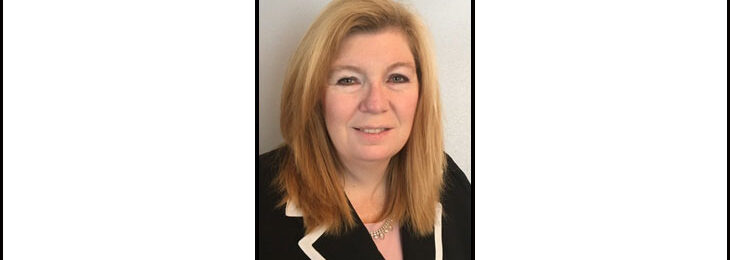
As discussed in a previous article, Riddle Me This: Export Controls, governments seek to accomplish national security and foreign policy goals by controlling exports. Understanding export regulations is much like solving a riddle. Merriam-Webster defines the word “riddle” as “a mystifying, misleading, or puzzling question posed as a problem to be solved.” In the context of export controls, the puzzling question to be solved is a four-part riddle—the answer to each is needed to arrive at the solution. What is the product being exported? Where can it go? To whom? And why? This article, the second installment of a four-part series, will examine the puzzling question to be solved in the second riddle—where can the product go?
The Basics
At this stage of solving the riddle of export controls, the product will have been classified based on international nomenclatures; see Riddle Me This: What Is the Product Being Exported? for a full read of the first riddle. Consideration turns to where the product can lawfully go with the destination country as the primary determinant. Solving the second riddle involves three layers: trade embargoes, sanctions and national licensing policy. Each layer governs which goods, services and currency may be exchanged, to which countries the products will be shipped and whether an export license will be needed. These rules are legally binding policy mechanisms with strict operational expectations, accompanied by harsh penalties for violations.
It is little wonder that country-based controls are important public policy. They owe their existence to multifaceted, earnestly held beliefs and expectations about how countries should behave both inside and outside their sovereign borders. Country-based controls are put in place to limit the availability of dangerous items, force a change in bad behavior—e.g., human rights abuses and military aggression—or preemptively prevent bad behavior from occurring, by, say, forcing an election when a leader is gravely under or overstepping their responsibilities. Efforts to maintain international peace and stability rarely begin with country-based controls. Rather, they are the result of failed or stalled negotiations or when other attempts to curb undesirable behaviors have not resulted in the desired outcomes.
Sanction or Embargo?
It is common for the words “sanction” and “embargo” to be used interchangeably, and they both result in restriction or prohibition of commercial activity. Economic sanctions are often targeted and restrict only financial transactions or specific goods, like weapons, oil and luxury products. A trade embargo is an economic sanction that restricts all or nearly all commodity trades with the targeted country. Sanctions encompass all other types of prohibitions, such as asset freezes and travel or shipping restrictions, and can apply to individuals, organizations as well as countries. Embargoes only apply at the country level. Sometimes embargoes and financial sanctions are used simultaneously in a concerted effort to achieve policy goals.
Primary and Secondary Sanctions
Country-based trade embargoes and sanctions have varying degrees of severity, depending on the level of behavior adjustment being sought. There are both primary and secondary sanctions. Nearly all economic sanctions imposed by a country are considered primary sanctions. Secondary sanctions impose penalties on individuals and companies not subject to the sanctioning country’s lawful jurisdiction and are applied against entities engaged in the same dealings prohibited under primary sanctions. Secondary sanctions apply economic and reputational pressure on third parties to stop their activities with the sanctioned country by restricting a third party’s access to the sanctioning country in some way. If that seems like academic jargon, secondary sanctions can make more sense when considered in another context; they resemble a quintessential grade school dispute. Party A dislikes Party B and threatens to dislike you too if you do not also publicly demonstrate dislike for Party B.
Some policy situations tend to run hot, and secondary sanctions are definitely one of them, so much so that many countries have instituted blocking statutes that restrict exporters from obeying secondary sanctions from foreign jurisdictions. It is debatable whether international blocking statutes are any more effective than they were when it was a school principal trying to enforce a similar concept. The operational reality is that absent the ability to maintain friendly relationships with both parties; a side will be picked based on one’s own best interest.
Multilateralism
On the world stage, the principal trying to mediate these types of arguments is the United Nations Security Council (UNSC). Multilateral country-based controls start at the United Nations (U.N.). Under U.N. Charter, Article 41, Chapter VII, the UNSC can use enforcement measures, such as “complete or partial interruption of economic relations and of rail, sea, air, postal, telegraphic, radio, and other means of communication, and the severance of diplomatic relations.” The UNSC’s use of country-based controls has become increasingly popular—today, there is a dizzying array of partial, sector-specific, targeted and comprehensive trade embargoes and sanctions. Once any of these enforcement measures are adopted by the UNSC, each member country is obligated to incorporate the measures into their enforceable national regulations.
The most effective and widely used embargoes and sanctions are multilateral, with many countries participating in the noble end game. But it would require the willful suspension of disbelief to think that global stability concerns are the sole considerations behind embargoes and sanctions. Political and religious motivations are ever-present, and because it is far more expedient for a country to enact its agenda without the bothersome task of getting other countries on board, unilateral sanctions and embargoes must be considered when solving the second export control riddle.
Problem Solved
While trade embargoes and economic sanctions are different in scope, their operational outcome is often the same—a company simply does not conduct business of any kind in or with a country under comprehensive country-based restrictions. In nearly every export where a sanction or embargo exists, the second riddle is solved. In fact, the entire export control riddle is solved; there is no need to bother with the third or fourth riddles—goods will not be exported to the sanctioned or embargoed county. But it would be rare for the riddle to be solved at this stage because most countries are not under any controls; thus, a third and final layer of consideration is necessary.
National governments put export license policies in place to keep dangerous goods from freely circulating in the global economy. To fully solve the second riddle, exporters must conduct a country-based license determination check. This is done by comparing control codes associated with a product’s assigned export classification (first riddle) to a list of country destinations. This comparison exercise will indicate if an export license is required.
So Now What?
Evaluating country-based controls for sanctions, embargoes and national export licensing regulations yields the solution to the second riddle—where can the product go? Financial compliance professionals are often well-versed in economic sanctions, but the rest of it can seem overwrought and needlessly confusing. Within the definitions and various policy schemes, it is easy to lose sight of the operational realities surrounding country-based controls in international trade. When government’s place limits on which countries companies may transact financial business with, the distinction between sanctions and embargoes blur. Whether an organization is permitted to export to a county becomes irrelevant if there is not a legal way of being paid for the goods. There is a saying in global trade, “if you cannot take the check, do not do the dec [export declaration].”
Anne Marie Lacourse, consultant, Dow Jones Risk & Compliance, USA, annemarie@lacourse.us










